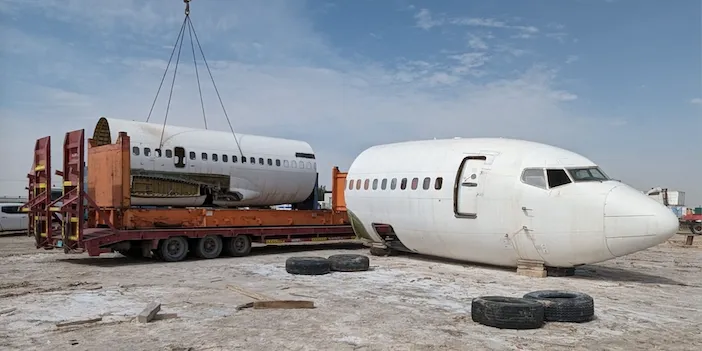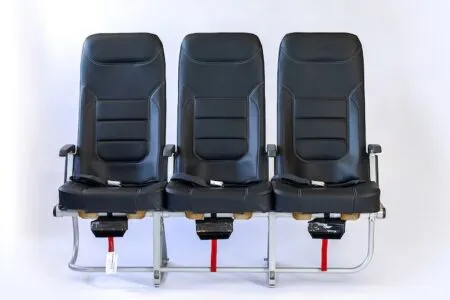Six aviation stakeholder groups from across the world have launched The Aviation Circularity Consortium (ACC), an alliance of organisations working to accelerate the decarbonisation of the supply chain. The ACC was formed to catalyse a circular economy model that creates value from the 8,000 end-of-life retired aircraft stored at ‘boneyards’ around the world.
This model bridges the gap between unused materials from retired aircraft and the growing demand from manufacturing industries for high-quality resources, and will work to enable permanent emissions reductions in the global supply chain.
The founding organisations of the ACC are Jamco America (an aircraft interiors supplier); Qantas (the Australian airline); Nandina REM (a supplier of verifiable ultra-low emission advanced materials to the aviation and automotive industries); Sumitomo Corporation Asia & Oceania (an industrial giant); Titan Leasing (an aircraft leasing company); and Vaupell (an engineered plastics, advanced composites and metal specialist).
The alliance is borne out of the growing opportunity that decommissioned aircraft present as a new source of valuable circular materials, and a need to address the significant waste pollution challenges of boneyards around the world. Research by the ACC has found that an estimated 8,000 retired aircraft are parked in deserts, jungles, and storage yards globally, with 11,000 more estimated to be added in the next 10 years. Meanwhile, high-value materials such as aluminium and carbon fibre – which makes up the majority of aircraft components – will continue to see exponential demand, especially from industries driving the green transition.
Embarking on a cross-sector collaboration, the ACC’s approach will be two-pronged. First, member companies will work together and engage closely with OEMs and regulators to develop an implementation roadmap for the certification of these reclaimed materials for use in aviation products and other industries in the green transition. The roadmap is slated for publication in late 2024.
Second, Nandina REM, a supplier of verifiable ultra-low emission advanced materials to the aviation and automotive industries, will lead engagement with financial institutions towards the development of sustainability-linked financial products that will support supply chain adoption of the roadmap. At this year’s Singapore Airshow, Nandina REM launched an industry-grade carbon fibre material reclaimed from end-of-life aircraft and reprocessed to aviation specifications.
Commenting on the ACC, Karina Cady, CEO of Nandina REM said, “The interest in circular aviation materials garnered during the Singapore Airshow demonstrates a huge opportunity to raise circularity as one of the key strategies to accelerate decarbonisation in the global supply chain. Achieving this requires collaborative effort across industry stakeholders from all fronts – manufacturers, airlines and regulators – to bring their unique expertise and resources to the table. This launch is crucial in building such a collaborative industry ecosystem, working towards enabling high-value circularity in the global supply chain.”
Andrew Parker, chief sustainability officer at Qantas added, “Decarbonising aviation and reducing the industry’s environmental footprint is a challenge that requires innovative solutions. As well as the significant commitments and investment towards reducing our emissions, we’re committed to sustainability across our entire operations and supply chain. There is a lot of untapped potential in the high-value materials from retired aircraft that could be recycled and used to create parts in future Qantas aircraft cabins. We’re pleased to be part of this industry collaboration, which is an important step towards a more resilient and sustainable future for aviation.”
To learn more about the ACC, access the Consortium’s Statement of Intent. Companies interested in joining the Consortium can submit their interest through the ACC Contact Form.





